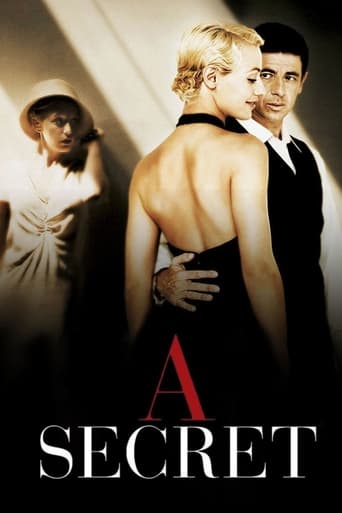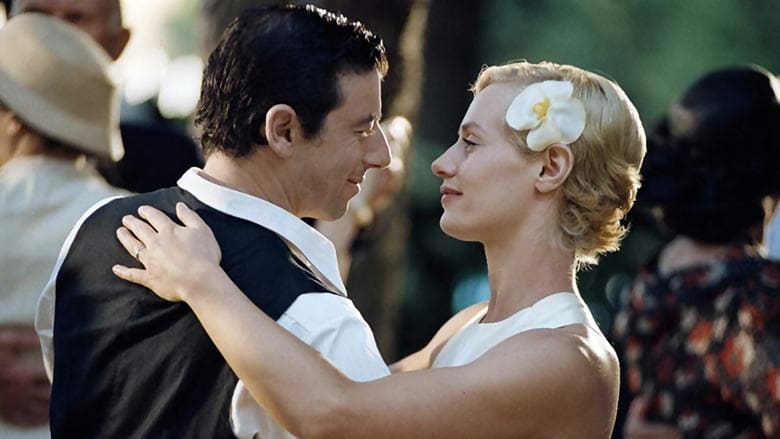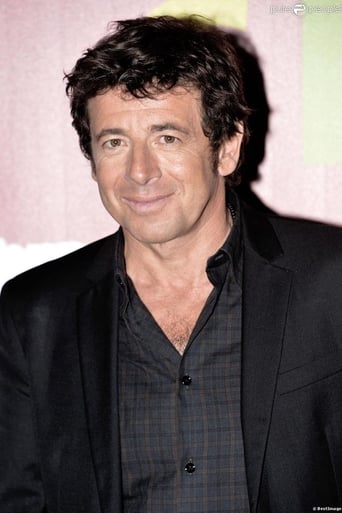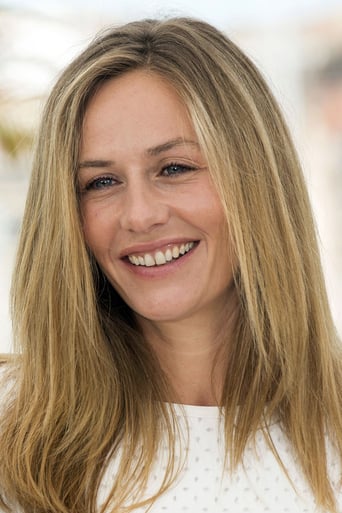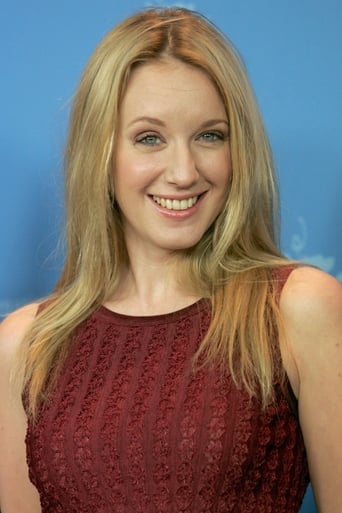A Secret (2007)
In 1953, a sensitive French boy finds out from a neighbor that his family's Jewish. François Grimbert becomes a physician, and gradually peels the layers of his buried family history which resulted in his difficult upbringing, raised as Catholic by his "Aryan" appearing parents. His athletic father labored to stamp out stereotypical Jewish characteristics he perceived in his son, to keep the family's many secrets, as most relatives fought in World War II, and later were hauled off to labor and death camps by the Gestapo.
Watch Trailer
Cast


Reviews
Overrated
Fun premise, good actors, bad writing. This film seemed to have potential at the beginning but it quickly devolves into a trite action film. Ultimately it's very boring.
It's simply great fun, a winsome film and an occasionally over-the-top luxury fantasy that never flags.
It’s sentimental, ridiculously long and only occasionally funny
All François knew was that his father wasn't overly fond of him. Part of it may have been because he wasn't as athletic as his parents. His father would get upset when he talked of an imaginary "brother." No one talked of the family secret until he was 14 and Louise (Julie Depardieu) decided he should know. She tells him of life during WWII, and his father's first wife, and his son. Unbeknownst to him, they were all Jews, even though his father never practiced his faith. During the war they escaped France. All except his wife (Ludivine Sagnier) and son. She decided to demonstrate her independence at the wrong time. Of course, she was also upset that her husband (Patrick Bruel) couldn't keep his eyes off her brother's wife (Cécile De France). Who could? What happened didn't become known until François (Mathieu Amalric) was older. We, the audience knew what was going to happen, but the Jews at the time had no clue. Julie Depardieu really excelled in this engrossing tale. Cécile De France was also very good. It was a brilliant work of art.
All François knew was that his father wasn't overly fond of him. Part of it may have been because he wasn't as athletic as his parents. His father would get upset when he talked of an imaginary "brother." No one talked of the family secret until he was 14 and Louise (Julie Depardieu) decided he should know.She tells him of life during WWII, and his father's first wife, and his son. Unbeknownst to him, they were all Jews, even though his father never practiced his faith. During the war they escaped France. All except his wife (Ludivine Sagnier) and son. She decided to demonstrate her independence at the wrong time. Of course, she was also upset that her husband (Patrick Bruel) couldn't keep his eyes off her brother's wife (Cécile De France). Who could? What happened didn't become known until François (Mathieu Amalric) was older. We, the audience knew what was going to happen, but the Jews at the time had no clue.Julie Depardieu really excelled in this engrossing tale. Cécile De France was also very good. It was a brilliant work of art.
One of the big achievements of Un Secret which must be noted is that the director, Claude Miller, doesn't entirely sympathize with his characters or make them out to be all completely good Jews. They're not. This is a film concerning the holocaust that doesn't just make a blanket statement like "Nazis = Bad". No, there were Jews who were in denial, and tried to cloud over the horrible fact that was upon all of Europe, and indeed it's when the film takes its most dissecting view at the flaws of these characters that the veneer is stripped away of completely innocent people being swept up in the maelstrom. While Miller obviously acknowledges and shows the horror of anti-semitism in France (one brief scene in a classroom showing Night and Fog is especially startling) and of the rise of Hitler, he puts his eye on the Grinberg family and what really happened between François Grimbert's parents (name changed when he was a kid) before and during World War 2.Miller's approach with Un Secret is a tricky one structurally, and it doesn't quite find it's footing until a third of the way into the film. He tries to find a back-and-forth-and-back form of dealing with three periods of time: 1930s, 1950s/1960s and 1985 when everybody is older and it turns to black and white (an opposite touch that works, for a moment), and it's only effective in about the first five minutes. I became wary of those sudden jumps to the 1985 portion of the film, where we see an old Maxime Nathan Grinberg (Patrick Bruel) grieving over the loss of his dog and his son trying to find him, and found it didn't strike anywhere near as well as the 50s scenes. On top of this, after all of the film has ended, that huge chunk of the film with the focus on that first marriage of Grinberg's with Hannah and his very obvious but eventually-acted-on infatuation with Tania (very sexy Cecile de France) was far more effective dramatically and tonally than anything else in the film.This is not to say Un Secret doesn't cast a very fascinating look into this particular boy's lack of perspective and of his father's determination to compete on a physical level with the Germans, to almost "be" one in a perfectionist sense athletically, and how this one secret is part of scarred memory, attachment to one's faith and religion and who they are, and love and lust. The cast is generally excellent, with Bruel, De France and Sagnier delivering work with nuance and exquisite, painful emotions that resonate from one into the next scene (Sagnier is so good she gets us to feel repulsed, or at least taken completely aback, by what she does while in hiding). And the moods of joy and despair in a Jewish family circa 1930s and 1940s- and the subsequent self-imposed shame of people in Europe even after the war ended- is captured with some real power and accuracy.But Miller also can't completely fix together his narrative; he feels the need to jump around as if it will create a really intriguing rhythm, where if he stepped back and told it without sudden jumps or surreal bits like the "brother" in the boy's bedroom at night the film would benefit. There is also a lack of a real resolution; the 1985 scene just didn't cut it for me as far as an unspoken father/son thing, and despite it sounding conventional a confrontation of the boy to his parents might have brought something more interesting than the uneven subtlety of the ending. A lot of this is so hearth-breaking in its true dimensions and probing of the subject that the only real disappointment is how it doesn't fell... complete with itself.
What's the difference between a film and a movie? Or is there one? Well, some works are definitely both...Hitchcock, Sirk...but, what's my point? Oh, yeah...this is a MOVIE. Like, well maybe I've seen too much Ozu or something, but I think ONE glance from Patrick towards Cecile ON HIS WEDDING DAY would've really made the point - would've made the point a lot better than it was made. From that moment on, I was in danger of checking out. If I ever see this film again, I promise to count how many times he checks HER out in that one poor sequence. It's at least 20 times - ridiculous.I don't like having my cinephilia insulted in this way. And the Kitsch of it is, from that moment on, we are launched into some kind of weird Freudian/Lacanian scenario where The Return of the Repressed meets The Primal Scene. Every time we see Tania's taut buttocks in that clingy bathing suit that covers her va-va-voom body, every time we are thrown back into that most Portnoy-ish of Selfhating Wet Dreams, where the Blond Shiksa is a Full-Blooded Jewess, we both can't wait for Mommy to die so that we can be together with the Babe, and we hate ourselves for feeling like this. Guilt - yummy! It takes away the feeling of prurience and lays "high seriousness" on top of it - one of the classic Kitsch layer cakes. So why the Seven rating? Because if you leave out the fact that Miller really doesn't trust his viewers to think for themselves, there is something powerful in this film, the way it links Frenchness and Holocaust Denial, the way it shows how Jewishness is such a complex construction which conflates Race, Religion and Culture. But careful which films you quote if you're not on their level: Grand Illusion is name-checked, bits of Night and Fog are shown, and isn't the Bal Musette after the Klezmer Wedding (a really nice musical transition, by the way) shot at the same hall as the the famous Lesbian Dance in The Conformist? It sure looks like it. Pardon My French, but Vive La Difference!

